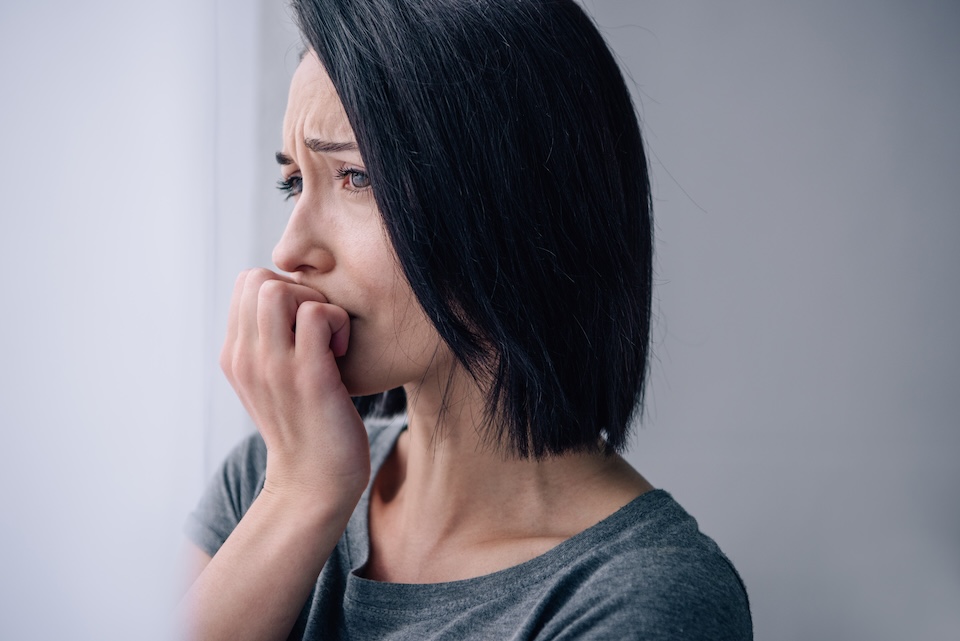Anxiety Treatment at Wolf Creek
Picture this: your boss trusted you to give a major presentation to some business partners. You have your PowerPoint and note cards with what to say ready to go. You just have to wait for everyone to arrive. You run through everything in your head, and…
You realize you got the time wrong. It was an hour ago. Everyone left already.
Do you feel a little terrified? Scared you’ll be fired? Your heart is racing and suddenly you’re frozen, unsure of what to do.
Now imagine feeling that way all the time – usually for no “good” reason. What if that car pulls out in front of me and I get in an accident? Is my friend late because something happened to them? Did I say something wrong in that last conversation?
You might not have to imagine it, because you might experience it every day. 32% of adults in Arizona experience symptoms of an anxiety or depressive disorder, so it’s definitely possible.
Maybe you’re managing something even more complex: debilitating feelings of anxiety and a substance use disorder. That’s where Wolf Creek’s dual-diagnosis anxiety and substance use disorder treatment can help.
What We Treat: What Is an Anxiety Disorder?
Everyone feels nervous when they have to give a presentation or need to have a hard conversation with someone they love. An anxiety disorder takes those nerves, amplifies them, and makes them last nearly all the time. You might feel nervous about everyday things, or typical things that cause anxiety might cause debilitating feelings for you.
Substances, such as cocaine and meth, can make anxiety worse, and anxiety can make substance use disorders worse. That’s why we treat both at the same time if you come to Wolf Creek for treatment.

How We Treat: Wolf Creek’s Approach to Anxiety Disorder Treatment
When you first enter our program, you’ll be assessed so we can figure out what treatment plan will work for you. If you have an anxiety disorder, you’ll participate in therapy addressing that alongside your substance use disorder. If medications would be a good fit, we can handle that, too.
We’ll provide housing for you during your time with us. You’ll come to our facility for therapy during the day, then go back to the housing at night. How long you spend in therapy depends on what will help you most.
Some therapy options we offer for anxiety are cognitive behavioral therapy (CBT), dialectical behavioral therapy (DBT), motivational interviewing (MI), rational emotive behavior therapy (REBT), family therapy, grief counseling, and outdoor adventure therapy.
How Are Anxiety Disorders Diagnosed?
Anxiety disorders are diagnosed through criteria in something called the Diagnostic and Statistical Manual of Mental Disorders, Fifth Edition. Thankfully, we can shorten this long title to DSM-5.
A medical professional will ask you questions related to the DSM-5 criteria. Based on how your answers correspond with it, that professional can diagnose you with an anxiety disorder. When you come to Wolf Creek for addiction treatment, we can diagnose co-occurring mental health conditions or refer you to an appropriate mental health professional for your needs.

Symptoms of Anxiety: The Mental and Physical Impact
There are multiple anxiety disorders, and the symptoms are a little different for each one. They’ll also vary from person to person because everyone is unique. That being said, the most common symptoms of anxiety are in the chart below.
| MENTAL EFFECTS | PHYSICAL EFFECTS |
|---|---|
| Fear, panic, or uneasiness. Frequent, uncontrollable worrying. Obsessive thoughts. | Clammy hands, dry mouth, nausea, shortness of breath, insomnia, trouble sitting still |

What Is an Anxiety Attack? How Is It Different From a Panic Attack?
“Anxiety attack” actually isn’t a medical term. There’s no way to diagnose one. Most people use “anxiety attack” to refer to a period of intense stress where a lot of symptoms of anxiety happen, often in a short amount of time.
What some people call an “anxiety attack” is often actually a panic attack, which is recognized in the DSM-5. Panic attacks are really intense instances of anxiety. People who experience panic attacks sometimes describe it as “feeling like you’re going to die,” because it comes with urgent fear and some physical symptoms that can feel extra scary in the moment, such as:
- Chest pain
- Heart palpitations
- Shortness of breath
- Feeling like you’re choking
- Hot flashes or chills
- Sweating
- Shakiness
- Dizziness
It is important to know that you don’t have to have panic attacks to have an anxiety disorder, and vice versa. People can have panic attacks sometimes without having an anxiety disorder, too.
From Genetics to Substances: What Causes Anxiety Disorder?
A whole bunch of factors cause anxiety disorders.
Family history plays a role in developing an anxiety disorder. This is both due to genetics and being exposed to anxious behaviors and ways of thinking.
Traumatic experiences, especially during childhood, can also lead to intense anxiety. Abuse, death, bullying, and other high-stress situations can all be influences.
Substance can also cause anxiety disorders. Sometimes, people with anxiety disorders turn to substances to cope with their symptoms. They might help them relax for a little while, but long term, substances make anxiety worse. They can also trigger anxiety disorders in people who didn’t have them before using the substance.
How Common Are Anxiety Disorders?
301 million people in the world had an anxiety disorder in 2019, making it the most common mental health condition. Almost 30% of people will experience an anxiety disorder in their lifetime.
If you have an anxiety disorder, you aren’t alone.
Get Help for an Anxiety Disorder With Wolf Creek Today
Managing symptoms of an anxiety disorder is an additional challenge for some people with substance use disorders. If you can relate, it probably feels like a vicious cycle of trying to find relief from the anxiety, finding it temporarily, and then the anxiety getting even worse.
Let Wolf Creek help you break the cycle. It’s unfair to expect yourself to be able to manage two tough situations on your own. Take this opportunity to seek treatment.
At Wolf Creek Recovery, we know exactly what you’re going through. Our staff is in recovery just like you and has been where you are. We’ll meet you there, and walk alongside you on your path to recovery. Contact us through our website or at 833-732-8202, and start building a life you love today.
FAQs
Can I treat my anxiety disorder without medication?
Therapy is also a viable treatment for anxiety, and some people don’t need medication. It’s difficult to manage an anxiety disorder without therapy or medication.
How can I help myself during an anxiety attack or panic attack?
Recognize when you’re experiencing a panic attack, and remind yourself the feeling will pass. Close your eyes and take deep breaths. Some people find repeating a mantra in their head or focusing intently on an object helpful, too.











